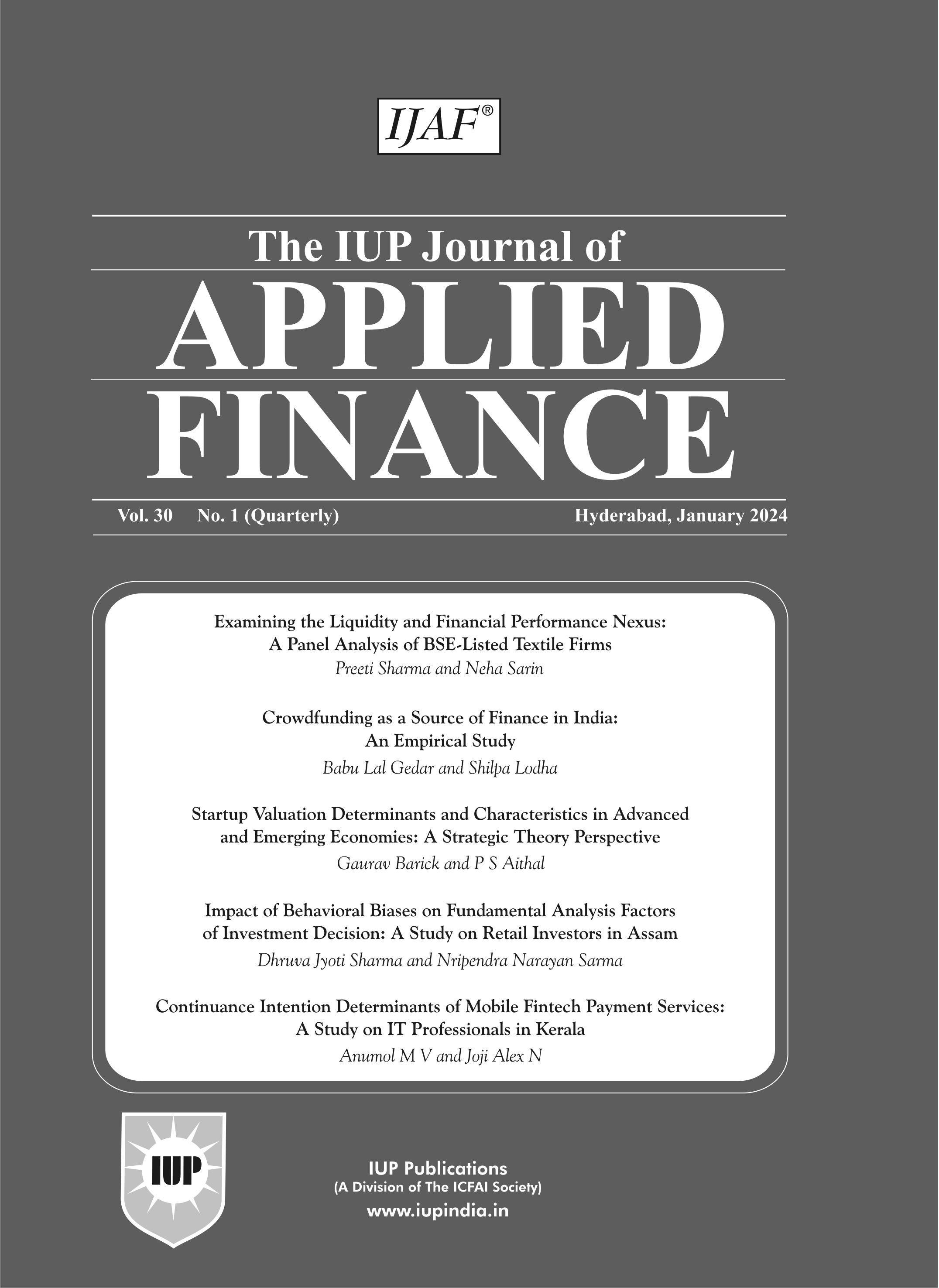
Oct' 21
The IUP Journal of Applied Finance
Focus
|
|
Do Board Characteristics and Ownership Structure Influence Related Party Transactions? Evidence from India
Many corporate scandals, including Satyam scam, raised considerable concern about Related Party Transactions (RPTs). The hypotheses associated with RPTs say that RPTs have dual effect, transaction efficiency and conflicts of interests. RPTs increase transaction efficiency by reducing the transaction cost, but the conflicts of interest hypothesis says that the controlling shareholders may use RPTs to transfer firm resources for their private benefit. The literature says that both the internal and external governance mechanism of firms and ownership characteristics have a significant impact on the decision to enter RPTs. The best governance practices can transform abusive RPTs into efficient transactions. This paper examines the impact of governance mechanism and ownership structure on the size of RPTs. The empirical findings of the study prove that both the governance and ownership characteristics have a significant impact on the size of RPTs.
The Impact of FDI on the Financial Performance of Life Insurance Companies: A Comparative Analysis
India is a developing country, and long-term investments are essential for the development and growth of the country. Insurance industry in India, being an attractive destination for foreign players, has been witnessing a large number of cross-border mergers and acquisitions. Even the Foreign Direct Investment (FDI) cap has been increased from 26% to 49% and now to 74%. Still this has not satisfied the demand of the sector, and now again the demand for 100% FDI is raised in the insurance sector. Thus, this study examines the impact of FDI on the financial performance of life insurance companies. For that the financial performance of FDI-based and non-FDI-based life insurance companies are compared using CARAMEL model which includes Capital Adequacy, Asset Quality, Reinsurance and Actuarial Issues, Management Soundness, Earnings and Profitability, and Liquidity. These variables are taken as dependent variables and type of company (FDI-based and non-FDI-based) is taken as the independent variable. The study is based on secondary data, and Mann-Whitney test and Anova test are used for analysis. The results suggest that FDI has a significant impact on life insurance companies and FDI-based life insurance companies perform better than non-FDI based life insurance companies in terms of capital adequacy, management soundness and earnings and profitability.
Predictors of Retirement Saving Behavior
This study examines the effect of family influence, peer influence, risk tolerance, financial literacy and financial attitude on retirement saving habits and beliefs. The study was conducted on working people in the age group of above 25 years from both private and public sector, and the final sample consisted of 132 respondents. The study used the Structural Equation Modeling (SEM)-AMOS for the analysis of data and to test the proposed model. The respondents were also asked about their choice of retirement saving avenues. The results show that real estate (21% of the respondents) is the most preferred saving avenue, followed by FDs (19% of the respondents) and NPS (17% of the respondents). Shares have been ranked the lowest as an avenue for retirement saving because of their volatile nature. The study found that peer group has a positive and significant influence in shaping the retirement saving habits and beliefs. Financial literacy positively impacted retirement saving habits and beliefs. Similarly, financial attitude also had a significant effect on retirement habits and beliefs. Careless/imprudent financial attitude negatively affects retirement saving habits and beliefs. The findings suggest that financial literacy should be given paramount importance so that people develop positive financial attitude and would be able to save sufficient for their retirement. Financial literacy being the most important factor should not be just limited to printed material and textbooks, but the approach should be adopted since childhood so that people learn personal financial management and plan their savings for retirement.